
According to conventional wisdom, Lockdown has given us all a greater awareness of nature and an appreciation for the outdoors; but the measures to control Coronavirus continue to have a major impact on the outdoor activity industry. From individual instructors, guides and mountain leaders, to the big residential centres, the experiences of those working in the sector are as varied as the industry itself, and while some have been able to adapt to the uncertainty, for other businesses and institutions the limits still in place across the UK now represent an existential threat.
While it has proved possible to establish virus-safe working practises in the outdoors, the continued restriction on indoor group activity, particularly overnight school trips, is taking a huge financial toll on residential outdoor education. Jobs are already being lost, and centres forced to close. Without a change of government policy, both at the UK and devolved levels, many feel the damage to outdoor education provision will be catastrophic.
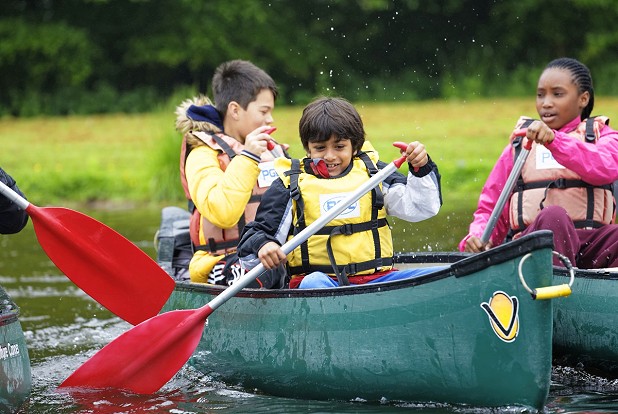
To gain a broader understanding of the pressures being felt across the industry, and the ways people are finding to respond to them, we have asked a range of providers about their own experiences of the past few months, and their thoughts on what happens next.
Outdoor Education
Generations of school children in Britain have benefited immensely from outdoor education. For youngsters from urban areas, and those of less well-off backgrounds, trips to residential centres can be transformative, providing a rare opportunity to access the countryside and the outdoors, and to build life skills and resilience.
But the residential outdoor sector, of which many of us will have fond memories, has been hit particularly hard by Coronavirus and the restrictions that have been imposed as a response. Outdoor education as we know it now faces an existential crisis, according to representative bodies and many who work in the sector.
"Outdoor education centres across the UK are currently facing an unprecedented threat to their very existence," say Mountain Training, the collection of awarding bodies for skills courses and qualifications in walking, climbing and mountaineering in the UK and Ireland.
"Without [residential outdoor education], schools, children and communities will permanently lose important, formative educational experiences," they said in a statement in early October.
UK Outdoors, the industry body for outdoor learning and activities representing 5000 individuals and organisations, echoed these warnings, claiming that the Government's continued advice preventing overnight educational visits threatens the future of the sector.
"Outdoor education is part of British culture with over 2m children a year taking part. It is a vital resource for all schools to allow children to develop their social and teamworking skills in a friendly and safe environment. More so for the thousands of inner-city schools, students and parents for whom outdoor education is a lifeline" they said.
Boarding schools, hotels and hostels have been allowed to continue operating, yet the school travel sector has been effectively closed by Government since March, a situation that those in outdoor education consider to be grossly unfair to both staff and children.
"The inaction over guidance on travel and overnight visits for educational settings has already cost businesses, from small independent trip providers and local authority centres to larger organisations, an estimated £500m in lost revenue and over 6000 job losses," say UK Outdoors.
"If no action is taken and no support is provided this academic year the sector stands to lose all its 15,000 jobs and nearly half its capacity permanently, decimating a vital British industry" they claim.
Gareth Davies of Arete Outdoor Centre knows the problems only too well. A non-profit facility near Caernarfon that was run by Worcestershire Council for 35 years until staff gained ownership in 2014, Arete Outdoor Centre generates almost all its business from residential school groups - in a normal year. But of course, 2020 is proving anything but normal, and the impact of coronavirus restrictions is proving catastrophic.
"95% of our income is from school residentials and we haven't been able to provide them since March due to Government guidelines on school overnights," Gareth tells us.
"We have been given no clarity on this issue from the Department of Education for 2021 so schools are bring forced to cancel through to July 2021 and most schools can't book for Autumn 2021 either as per normal."
"So on that basis and with furlough running out, we have no prospects. With no income, we can't pay staff and we can't pay bills. As well as our contracted staff we would [normally] be employing up to 15 freelance instructors too, plus domestic, office and maintenance teams.
"The centre is set up for schools and groups, not a comfortable cottage for a family, so it is difficult to attract these alternative bookings, [and] even then they would only ever provide a small extra."
The National Centres
Plas y Brenin, the National Outdoor Centre for England and Wales, has been able to operate since the end of lockdown, although Loel Collins describes how the whole sector will be impacted for years. What's frustrating for the sector is that it is completely operable:
"The fantastic thing is that the sector is completely viable and it's only that the regulations that cover outdoor education are not comparable with other regulations in other similar areas. A boarding school can be open, but you can't open an outdoor centre," says Loel.
Loel explains that Plas y Brenin is very lucky because of their status as an educational charity and the fact they work with adults - "I'm incredibly conscious that we're very fortunate to be able to do this. So many other centres are not in our position," says Loel. "The Mountain Training Trust run PYB for Sport England, who have been very supportive and efforts to stay open and continue to operate."
"A lot of outdoor centres wouldn't be allowed to do what we're doing because of the restriction on travel to the centres and that has created the bulk of the problem for the outdoor sector."
The centre lost all their school bookings in the spring to summer period and whilst some business did return during the summer, it did not make up for the closure, by any stretch. They're noticing that people are leaving it later and later to book onto courses.
Smaller providers and freelancers
Many of those making a living in the outdoors run much smaller businesses, or work as freelancers. In a time of economy-wide upheaval, the familiar pros and cons of self-employment have become less clear, since employees of at-risk larger operations now lack the usual benefit of job security. With fewer fixed costs, less reliance on big long-term bookings, and greater flexibility than bigger businesses such as outdoor centres, some individuals have found it relatively easy to adapt to the new normal.
"The industry is very diverse," says Alan Halewood MIC IML, of Climbwhenyoureready.com, a one-man-band based in the West Highlands.
"Smaller one-man organisations like me with few overheads have come out of this best, hibernating a short while before at least partial if not even healthy return to business in some cases. Those with property, bills, staff etc. have had a pretty horrific time. I've seen that most particularly with climbing walls and residential outdoor centres. The last time we had a national event that caused as much economic distress to our world was Foot and Mouth but this is larger, Global, longer-lasting and will be further reaching. I remember a number of businesses that didn't survive that disease and have watched with sadness closures this time round. There will be more to come."
When lockdown first struck, "there was a whirlwind of contacting people to do" recalls Alan.
"Some people wanted to reschedule immediately and at first no-one asked for a refund. As the first couple of months passed though I paid back not a few bookings fees and deposits at the request of clients. I found I was covered by the freelancers support scheme as most of my work is for myself and rarely had I felt so glad to have been honest on my tax return!
"[But] it has been purely luck that the way I have ordered my business allowed me to claim the Freelancer support benefit. That and cancellation fees from my overseas job, an outdoor centre (I didn't feel right taking the whole fee from them and only took half... I didn't know it then but that centre has since closed down) and the University of Highlands and Islands have left me in a position where things haven't been too tight (my wife being a key worker helped) but I also haven't made the money I'd usually put aside for over the quieter Autumn and Christmas period. Not all my peers have been as fortunate with many slipping through the cracks in the schemes owing to having too much work on PAYE or for other reasons."
As lockdown restrictions began to ease, Alan and others in his position were fortunately placed to respond to a surge in pent-up demand.
"First there were the rescheduled people hanging on from earlier in the year and then slowly at first but then increasingly a healthy run of new bookings. My work has changed though. I'm usually away from home running NGB courses further afield around Scotland but have only travelled for 2 nights away from home since the end of Lockdown. My work has been even more mainstream teaching climbing and mountaineering than usual and based locally, in fact, it's been nice to be at home with my family and on the hill so much!" he says.
Looking forward
Of course, Coronavirus is far from done with us, and the gradual, patchy, reintroduction of restrictions on travel and activity across the UK is already having an impact on an outdoor sector still in turmoil from the first lockdown.
"The only thing I feel we can be certain of is further uncertainty" agrees Alan Halewood.
"My diary is very slowly filling for winter but a lot of regular work I have isn't present and something like new travel restrictions would mean it could all disappear anyway. I'll need to tighten my belt this Autumn but if I can't work my usual busy winter that's when I'll really feel the pinch. I can't complain however, I'm fortunate Its all gone so well so far and others are already in a worse state than me I'm sure."
And, of course, winter is coming, a quieter season for many in the trade, but one of the busiest times of year for those qualified to lead clients on snowy hills or winter climbs.
"I live in a bubble of higher-end qualification holders," says Alan.
"From social media, I perceive those working with 'lower' qualifications doing a lot less work in winter but for many Scottish based WMCIs and Guides (and to some extent active WMLs) late Jan to mid-March is usually our high season with shoulder seasons bracketing it too. For much of the core period, we are joined by visiting colleagues from the other Home Nations and late January, February and March see a real community of visiting Instructors and Guides based around Lochaber in the West and Speyside in the East. This year who knows how it will pan out? If we have a series of lockdowns will visiting Instructors be happy to pay accommodation costs as they wait? Will we have to add travel restrictions to the complex task of reading conditions and the needs of those we are working with? A poor winter with loss of earnings or bookings for many will need to be offset somehow. First Lockdown around, that meant delivery jobs and joining or returning to the NHS for some, but will that option be available again?"
"For people like me I'm relatively hopeful," says Alan.
"Small providers can take alternate employment and hunker down but larger organisations don't have that option and there will be a cost to pay that may have far-reaching consequences."
"The restrictions on travel have led to a flood of people into the countryside many of whom have no history of connection with it or experience of how to manage their own behaviour in and impact on the outdoors. If things don't change we may be looking at the near-total loss of residential outdoor education. This is one of the few ways many, many people ever experience being in the outdoors with good role models and opportunities to learn how to engage with it sustainably and healthily. As ever with politicians they seem to rob Peter to pay Paul. It's not just the loss of an entire educational medium we face but the environmental damage and future costs of cleaning up after an ignorant populace. I don't see this as an arrogant opinion as I feel that if I hadn't been exposed to outdoor education early on I'd probably make many of the same mistakes!"
Measures to mitigate the virus risk
Since the risk of virus transmission is generally accepted to be lower outdoors, guides and instructors have found it relatively easy to work within safe guidelines on the hills and crags, provided that transport is not shared with clients and there is no indoor contact.
"Although I'm fortunate in that most of my work is outside in a well-ventilated environment there have been discussions with every person I've worked with about how to manage the risk of transmission" explains Alan Halewood.
"Interestingly the Instructors seem more concerned than many (most?) of those we've been taking out. Those I've been on the hill with who work in any branch of health care usually feel that a day on the hill or at the crag presents far less hazard than their work environment!
"There has been a lot of extra work to do: guidelines sent out, daily conversations about symptoms, there is no private transport sharing now (I've used buses, trains and taxis but can't share a car with clients even if I put mitigation in place - go figure?), on the hill I'm often asking people to look away as I step in to fix something, always have a buff handy, carry a bit of extra gear in terms of gloves, face coverings etc., manage how I clean or quarantine all my gear after each day's work... I have also cancelled a weekend's work to wait for the outcome of the Covid test of a client's child (negative). Like many, I've also dialled my risk assessment up a notch taking into account how even more than usually undesirable requiring Mountain Rescue assistance would be."
"And, of course, every time ScotGov has made an announcement there has been a flurry of phone, email, Messenger and WhatsApp conversations to see what may have changed this time," Alan says.
"And that's just out of doors. I provide technical advice to climbing walls and have been working in one myself regularly for a month. Ever since lockdown started I've been providing advice to walls I work regularly with, and others, on how to work within the guideline. Alongside the folks at MScot, NICAS, MTS and the ABC there has been constant work going on. In the wall itself, ratios are down, sessions need more planning (and time booked with walls), and there are the same distancing, hand hygiene and equipment issues as outdoors and face coverings are being worn at any time I'm not on the wall too."
Though the outdoor education sector has been desperate to prove its ability to operate safely, UK and devolved governments have so far blocked residential and overnight school trips. This is unfair, many in the industry feel.
"Health and safety is a priority for the school travel sector," says UK Outdoors.
"It has continuously reassured Government that it is safe to operate, meeting and exceeding all relevant Government guidelines. Collectively, the sector has developed robust COVID-safe guidelines for providers as well as detailed COVID protocols handbook for Government and public health authorities. All providers have undertaken to, amongst other initiatives, reduce capacity to meet guidelines, maintain social bubbling – a key Government policy - and increase staffing."
Loel Collins at Plas y Brenin describes the lengths to which the centre has gone above and beyond guidance to ensure safety for their groups: "The first thing we do here is that we don't let anyone on-site if they're demonstrating symptoms or coming from a high-risk area. Everybody who arrives on-site with us will have completed a questionnaire and if they answer that questionnaire in a particular way, we then follow up with a phone call."
"On the activities, we're operating in smaller groups and moved nearly all our teaching to outside. Some of the other sessions that we can't do in that way have been delivered as webinars and then a small number of courses where we can't do that are delivered with mitigating measures at a social distance, in rooms that have a capacity."
"Outside with smaller groups, we did a substantial amount of work on how we could teach all activities and maintain social distancing. It took a little while to get everybody trained up, but we're there and now everybody is working that way."
"We've been changing how we're teaching; now we teach with the wind across groups to reduce transmission; we quarantine kit for 72 hours; we've retrained instructors on first aid. Probably the final thing is that wherever possible we use less frequented venues."
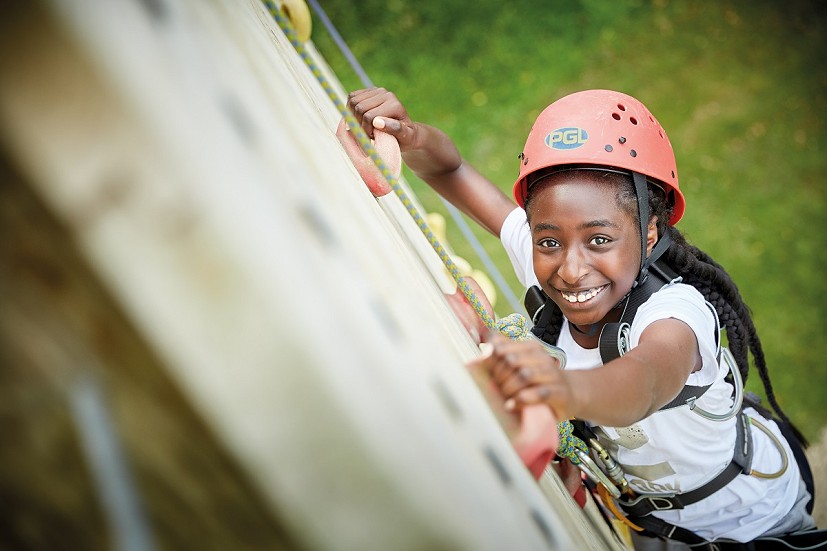
Jim Whittaker, Chair of Association of Heads of Outdoors Centres (AHOEC) and a UK Outdoors Member, said: "We have put our heart and soul into meeting every challenge the Government has set. It is a bitter pill to swallow keeping our sites closed while we see hotels, boarding schools and hostels delivering the same overnight experiences unabated. The sector is ready and safe to reopen. We have seen nothing, no science, that contradicts that position. We hope the Government will listen, understand the lengths our sector has gone to in ensuring safety and compliance and restart the sector."
What could Government do better?
"I'd love to see some recognition of the importance of Outdoor Education foremost," says Alan Halewood.
"If it is not supported now recreating it or paying for its loss will, I feel, cost more in the future than supporting it financially now. Whilst money is obviously needed in sectors across the board I can't believe there is no room for some level of help.
"The outdoors seems to be one of the safest places to be at present so decisions that reflect that would be welcome. So, whilst extended travel may be more problematic anything that prevents us travelling with minimal contact with others to enjoy outdoor exercise would be a heavy cross to bear as we saw during the '5 mile' period [as per the spring lockdown measures in Scotland].
"Exercise as a whole is widely accepted as beneficial both mentally and physically and we all need that now more than ever. Whilst I can see the economic argument for keeping the hospitality trade going in some form it seems crazy to do that at the expense of gyms and climbing walls. The leisure industry has worked incredibly hard to minimise the risk of transmission of the virus and all the research I've seen (and common sense) makes me feel that socialising with alcohol can't be as safe or as beneficial to individuals as trips to the gym or the climbing wall in the long term. I do hope that is taken into account when difficult decisions are made."
Over in the residential sector, the need for more decisive government action could not be more urgent.
"The government needs to provide guidance to allow school nights in a pandemic," says Gareth Davies of Arete Outdoor Centre.
"This can be done safely in line with school openings and with residentials just for a separate school bubble. Primarily they will be learning outside in the great outdoors which we know is safer."
"Apart from the economic impact [on centres and staff], the real losers are the pupils. Residential outdoor education has many benefits including resilience, confidence and wellbeing. Off the back of lockdown these are the kind of areas that Government recognises are essential for pupils to re-engage with education, and yet we are not allowed to open."
In addition to simply being permitted to operate at all, Mountain Training believes that without immediate financial support many residential outdoor education centres, some of which have been operating for at least forty years, will close their doors forever.
"This would deny hundreds of thousands of pupils across the UK the opportunity to have, what maybe for some, a once in a lifetime experience," they say.
"Ensuring all children and young people can benefit from these rich and varied educational experiences is imperative to helping students, schools and the education sector recover from Covid 19."
Since March, children and young people have missed out on over 1.5m educational visits, according to UK Outdoors.
"With Spring term fast approaching, the sector desperately needs certainty and guidance in place for a phased reopening to protect jobs, businesses and vital community assets that could be lost forever," they said.
"The sector is calling on the Government to review the guidance in November, in line with recognised science and health and safety protocols, and layout a roadmap for the reopening of the school travel sector."
On 13th October Cumbria MP Tim Farron called in Parliament for urgent government intervention to protect outdoor education centres in Cumbria from going out of business and asked to meet with ministers from the Department for Education, to argue the case.
Speaking during an Urgent Question on support for businesses during the COVID-19 pandemic, Tim said: "Outdoor education centres are a crucial part of our visitor economy. There are 60+ of them in Cumbria, employing hundreds of very talented people. Those jobs I'm afraid now are seriously at risk.
"Outdoor education centres provide huge benefits in terms of personal development, education, physical and mental health particularly valuable and essential at this time.
"They are as safe to reopen as schools - yet they face imminent ruin and closure."
It is clear that any forthcoming support for the industry cannot come soon enough.
Andy Robinson, Chief Executive of Institute for Outdoor Learning ("IOL") and Member of UK Outdoors, said: "Outdoor education and adventure is ingrained in our DNA. It is part of British education. Every child's first trip away from home is such an important and formative experience. We cannot just let the industry fall by the wayside through negligence and ignorance.
"[We need] the Government to act to protect the industry and ensure its reopening in time for the Spring term or face an economic, social and cultural disaster."
How can people help?
In England, UK Outdoors have started a campaign to Save Outdoor Education.
They are asking for public support to show Government the damage it is doing to "such an important educational asset" by writing to their MP to encourage them to lobby Gavin Williamson, Secretary of State for Education.
- People are being encouraged to use the #saveoutdoored on Twitter or Facebook
- A petition has been started to change DfE school guidance to allow overnight educational visits - see here
In Scotland, a similar petition calls for the Government to Save Scottish Outdoor Centres
- Mountain Training also suggests people write to their MSP, copied to John Swinney. A letter template is here.
In Wales, people can contact their local MS.
This short film looks at some of the benefits children can derive from access to the outdoors:
- INTERVIEW: Exmoor Coast Traverse - England's Best Kept Mountaineering Secret 10 Apr
- REVIEW: Rab Muon 50L Pack 9 Apr
- REVIEW: Boreal Saurus 2.0 22 Mar
- REVIEW: The Cairngorms & North-East Scotland 1 Mar
- REVIEW: Mountain Equipment Switch Pro Hooded Jacket and Switch Trousers 19 Feb
- Classic Winter - East Ridge of Beinn a' Chaorainn 12 Feb
- REVIEW: Salewa Ortles Ascent Mid GTX Boots 18 Jan
- REVIEW: Patagonia Super Free Alpine Jacket 7 Jan
- REVIEW: Deuter Fox - A Proper Trekking Pack For Kids 27 Dec, 2023
- My Favourite Map: Lochs, Rocks, and a Bad Bog 27 Nov, 2023



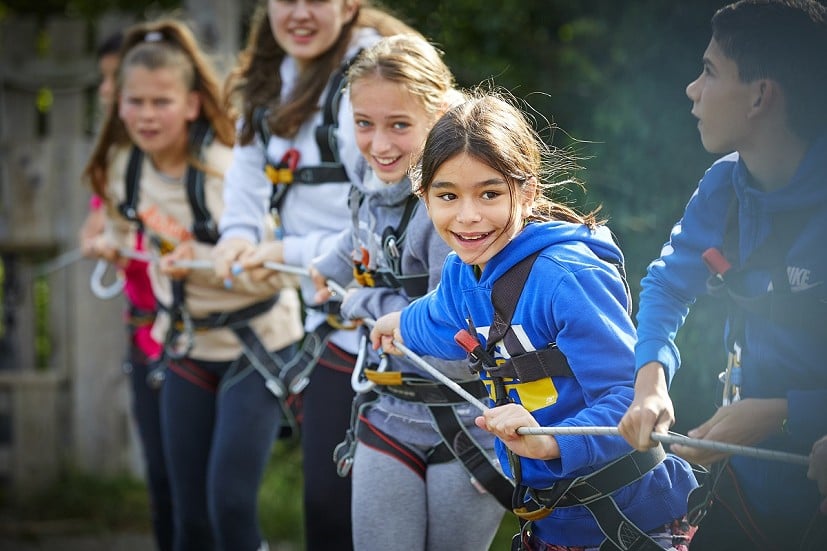
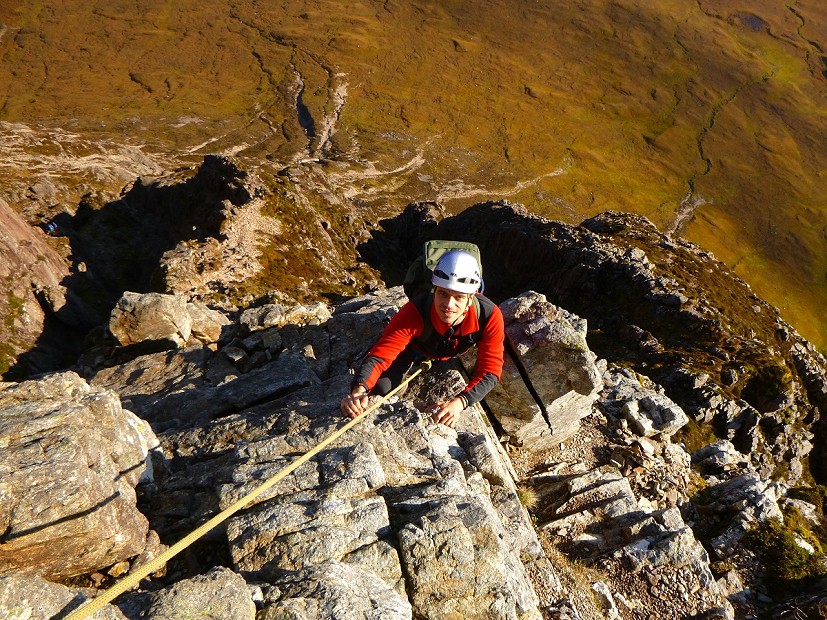
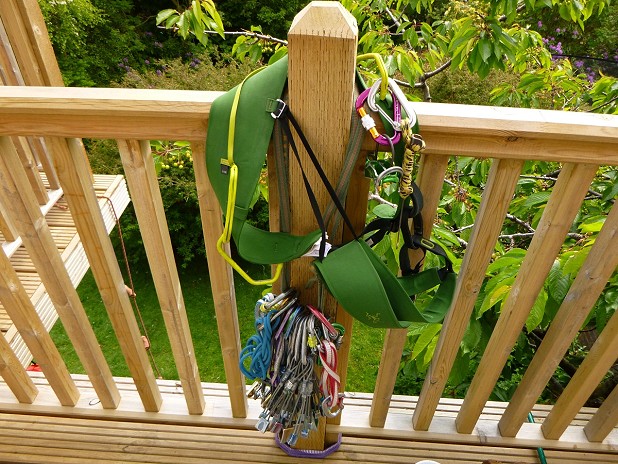
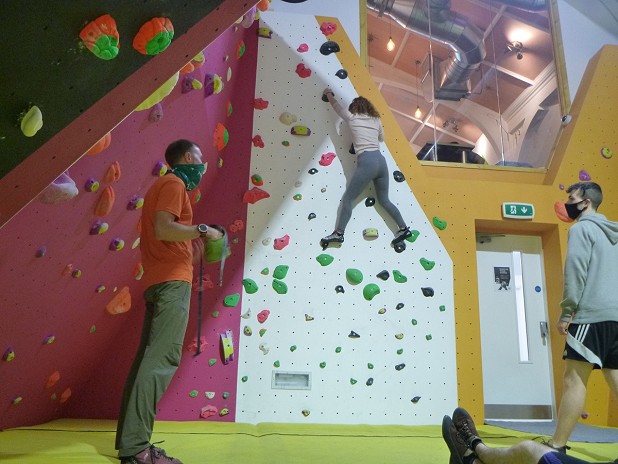

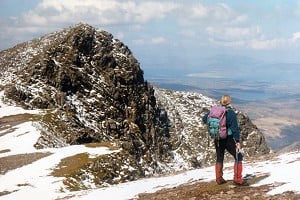
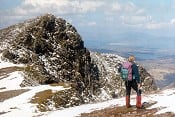
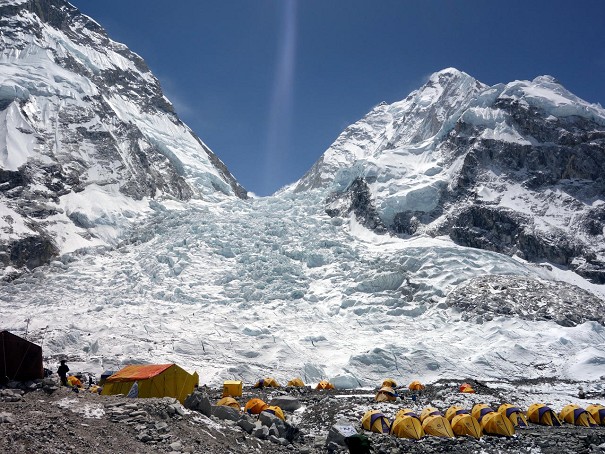
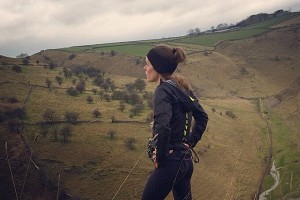
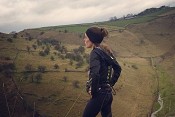
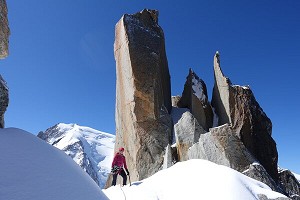
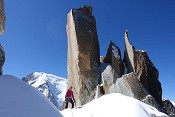
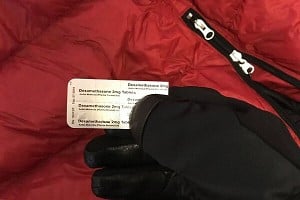

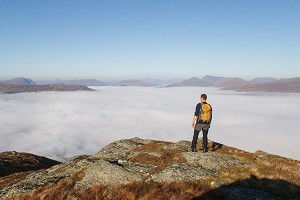
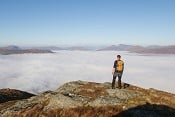
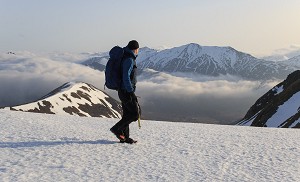
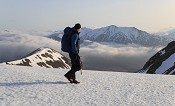
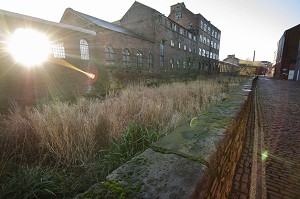
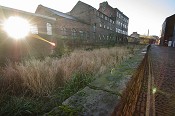
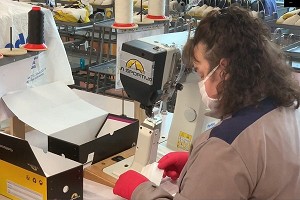
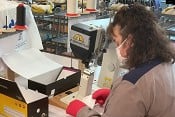
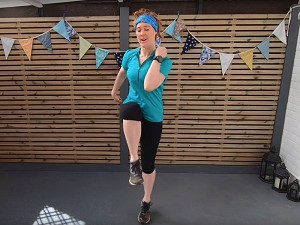
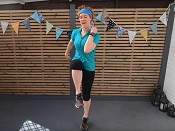
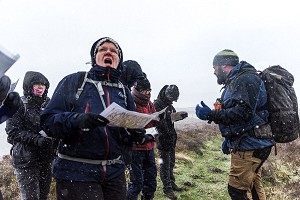
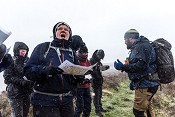
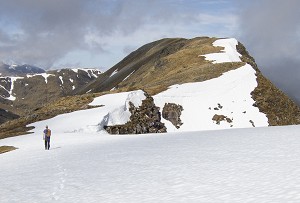
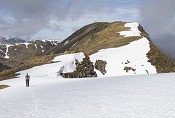
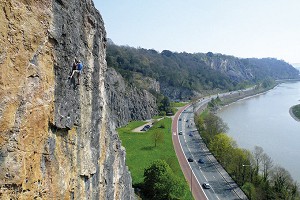
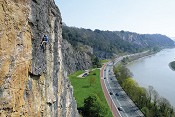
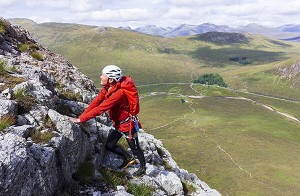
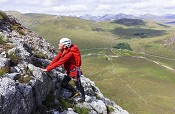
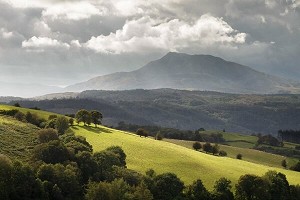
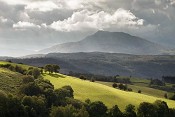
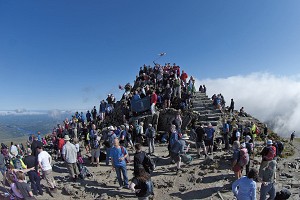
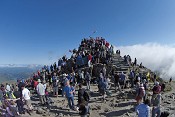
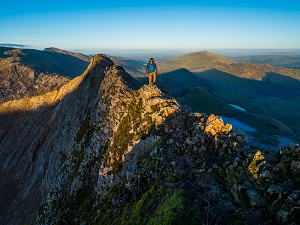
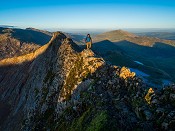
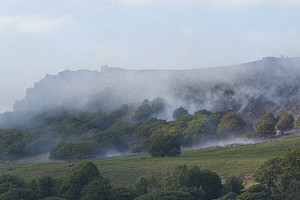
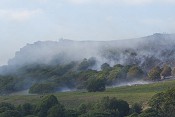
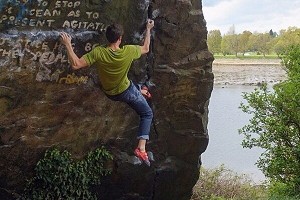
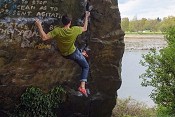
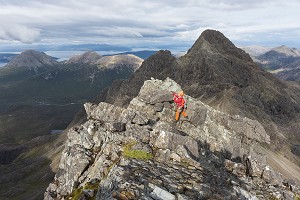
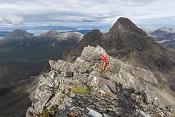
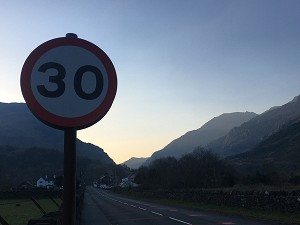
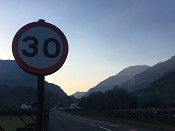
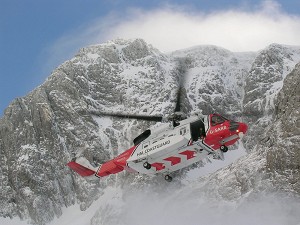
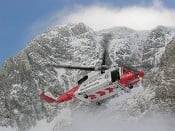
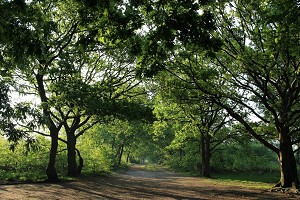
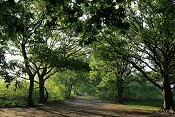
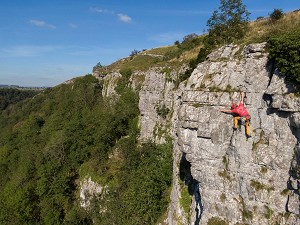
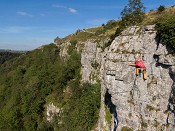
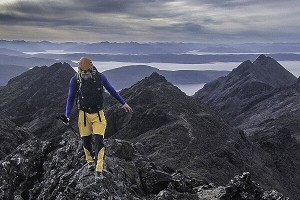
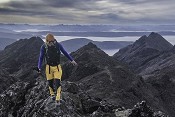
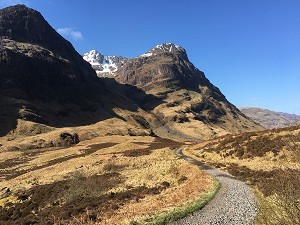
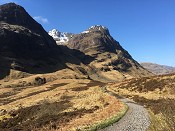
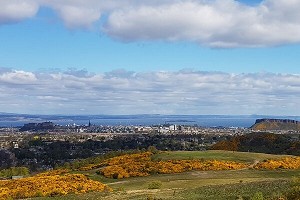
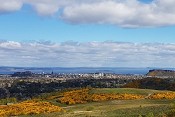
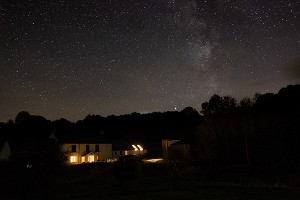
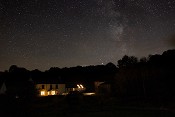
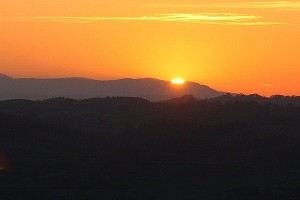
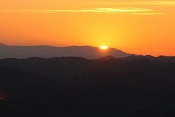
Comments